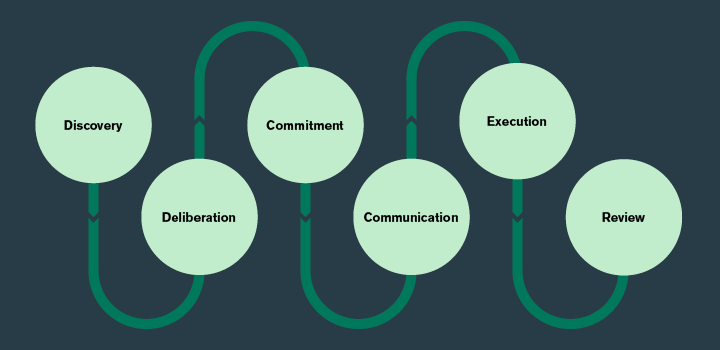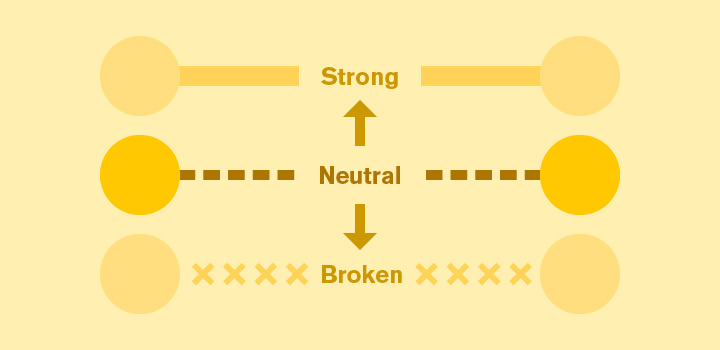Teamworks Point of View
Taking our own advice
A couple of weeks ago, we recommended that teams with too much on their plates take a step back and ask: What can we afford not to do? And then a funny thing happened: We decided to take our own advice. As our loyal customers know, the Teamworks team is a small one. The same person who […]
Turning the team’s good intentions into action

Our colleague Adam Schorr, a Principal at SYPartners, returns this week as a guest blogger. As a manager, one of your most important roles is to set direction for your team — to paint a picture of the future, build belief, and get everyone inspired and ready to go. But what happens when you’ve done […]
Synching up the team’s working styles: Part II

Note: This is the second part of a two-part series on Working Styles, a Teamworks tool that helps teams better understand and play to each person’s strengths. Read part one here. In the first part of this series, we discussed differences that can throw a wrench in the dynamics of any team — from contrasts in the […]
Synching up the team’s working styles: Part I

Note: This is part one of a two-part series on Working Styles, a Teamworks tool that helps teams better understand and play to each person’s strengths. If you’re a manager who would like your team to take the Working Styles diagnostic, you can sign up for a free two-week trial at Teamworks.is. Does your team have a hard […]
Knowing when to manage and when to lead

Often, the words we use shape the way we think. The words “leader” and “manager” suggest an identity. But, in fact, those words are not really descriptions of what you are; they are simply descriptions of what you do.
How to get around decision dysfunction

Does your team have decision dysfunction? If so, you’re not alone. In our work with teams over the past 20 years, we’ve found that decision-making is one of the biggest challenges teams face. When the team’s decision-making is impaired, it can feel like a pebble in the team’s shoe — a constant irritant. Or like […]
How vulnerability can be a source of strength

Poke around any organization, and you’ll find managers who lead from a place of fear. The ones who assert their authority and shut down opposing points of view. Who rarely let down their guard or admit uncertainty. Maybe you’ve worked for this person in the past — maybe you’ve even been this person in the past.
Lessons learned from the team behind Teamworks

Last week marked a big milestone for Teamworks. As we ramp up from a private beta to a public one, it seemed like a ripe moment to step back and reflect on a few lessons we’ve learned (or relearned).
How lukewarm duos can get you into hot water

Here’s a quick quiz. Think about your relationship with each person on your team, and note whether any of them match the following description: You know some basics about each other but not much more. Your conversations are cordial and generally stay on the surface. You only really interact when the work requires it. There’s […]
The false dichotomy of “leader vs. manager”

The problem with the “leader vs. manager” dichotomy is that it does everyone a disservice. It casts leaders in the role of disconnected visionary. And it reduces managers to the role of pragmatic administrator. It gives each side permission to ignore the responsibilities of the other.